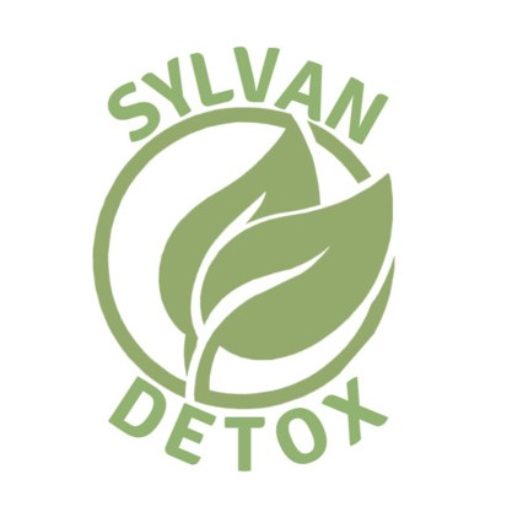What Causes Alcohol Withdrawal Symptoms?
Quitting drinking alcohol is not as easy as it may sound to those who have never tried. Alcohol addiction is a serious addiction that needs medical care under a doctor’s oversight. Along with physical withdrawal symptoms like alcohol cravings, headaches, body pain, stomach issues and vomiting, irregular or rapid heartbeat, sweating, fever, and in serious cases, seizures, you will also experience psychological alcohol withdrawal symptoms that can be distressing and cause additional suffering.
Withdrawal symptoms happen because addiction makes changes to the way the brain produces and processes certain chemicals. Your body becomes dependent on alcohol just to function normally, and when you quit drinking, the body needs to readjust itself chemically and detoxify your system. This causes distressing signals to be sent out to the body, and these can be uncomfortable, painful, and cause anxiety. Withdrawal can be so distressing that many people will start drinking again, preferring relapse and the negative health and social implications that come with drinking to the feeling of withdrawal.
Withdrawal happens because alcohol depresses the central nervous system, interfering with the firing of neurons in the brain, and disrupting messages being sent to the central nervous system. GABA (gamma-aminobutyric acid) is the main neurotransmitter affected by alcohol. It is responsible for producing endorphins. When alcohol is introduced into your system, the brain slows or stops producing GABA completely, along with other neurotransmitters like dopamine. Dopamine is important because it takes care of mood regulation, energy levels, motor coordination, enjoyment, and motivation. Drinking causes the brain to depend on the presence of alcohol to tell it to release dopamine over time, and without the alcohol in your system, dopamine production stops, which causes several negative symptoms to occur.
If you or a loved one is suffering from any form of addiction or abuse, please call Sylvan Detox at (818) 308-3099.
Common Psychological Alcohol Withdrawal Symptoms
Some of the most common psychological alcohol withdrawal symptoms are:
- Anxiety
- Agitation
- Depression
- Mood swings
- Irritability
- Insomnia
- Jumpiness
- Confusion
- Nightmares
- Hallucinations
- Difficulty thinking clearly
How To Manage Alcohol Withdrawal Symptoms
Alcohol withdrawal symptoms should never be managed alone. It is not enough to have strong willpower, unfortunately. Especially if you have been binge drinking (5 or more drinks on one occasion) or heavy drinking (8 or more drinks/week for women, 15 or more drinks/week for men).
Detoxing from alcohol can cause a great deal of physical discomfort and psychological distress. This can be so overwhelming that you may prefer to continue drinking over going through withdrawal, even with the damage it is doing to your body, your mental health, your relationships, your work, and your overall quality of life. Without proper medical oversight and treatments, you may experience dangerous symptoms or feel extremely sick and overwhelmed, which is why going to a professional detox and rehab center is a good idea.
In a detox center that offers medical detox protocols, you will live inside the center full-time as you detox, day and night, with 24-hour care from doctors, nurses, and other clinical practitioners to make sure you are safe. Prescription medications can be given to you to help you stay comfortable, rest your body, get a good night’s sleep, and avoid difficult pain, cravings, nausea, and anxiety. You will be physically removed from all temptations and triggers and people who enable your drug and alcohol use, making it that much easier to stay away from substances as your body purges the toxins from your system and your brain chemistry rebalances, becoming reaccustomed to not having alcohol in your body.
The way it works in the majority of medical detox centers is as follows:
- Admission – you will speak to admission experts, likely over the phone, to determine the best course of action for your unique needs as a patient. You will then come to the detox center and “sign in”, taking care of any necessary paperwork, insurance claims, etc.
- Evaluation – after you are admitted to your detox program you will meet with health care and psychiatric experts to figure out what medications, treatments, therapies, etc. will work the best for your physical and mental health conditions as you detox and move into a rehabilitation program. This may include talk therapy, counseling, doctor’s appointments, medications, group therapy, family therapy, behavioral therapy, holistic healing programs, exercise, and nutritional health programs, and much more, depending on the facility.
- Stabilization – you will move into your room at the detox center, living there for the duration of your detox. Medical care will be provided, and you will have prescription doses of medications provided as needed to keep you safe from high fevers, seizures, high blood pressure, or other issues that can come up during detox, as well as medications to ease suffering, keep you comfortable, and ensure you are able to rest and heal your body and your mind as the toxins are purged from your system. You will also begin seeing therapists or counselors during this time to help you through the emotional lows and stress of detoxing, as well as begin the process of healing the underlying roots of your addiction.
- Facilitation – detox is the first step down a long road to alcohol recovery, and it is always recommended to follow your detox program with a rehabilitation plan, so you can overcome the psychological, emotional, social, behavioral, and physical aspects of your addiction along with co-occurring disorders like PTSD or mental health issues. You will work on your sobriety, your mental health, and your behavioral health in a safe and supportive environment, through inpatient treatment and/or outpatient rehab programs. Your treatment will be tailored to help you with the issues you most need to overcome and may include life skills or vocational skills training, career and education counseling, case management services, legal help, and other practical assistance so you can leave rehab feeling ready to move forward and live independently, instead of being buried under paperwork or feeling dependent on others to get through life.
How Long Do Psychological Alcohol Withdrawal Symptoms Last?
Every person’s experience with alcohol withdrawal is unique because everybody has lived their own life experiences, has their own genetic and metabolic differences, and has their own physical and mental health issues. That being said, there is a general alcohol withdrawal timeline.
- Within 6 hours: you may experience mild symptoms like anxiety, vomiting, nausea, sweating, insomnia, headache, and shaky hands
- Within 12-48 hours: you may begin to have more serious issues like hallucinations and agitation
- Within 48-72 hours: the worst of your withdrawal symptoms will show up, including high blood pressure, confusion, delusional thinking, fever, seizures, and delirium tremens
- After about three days, you will begin to feel better each day, with the majority of people completing their detox program in between 3 and 10 days.
Post-Acute Withdrawal Syndrome (PAWS)
Post-Acute Withdrawal Syndrome (PAWS) is an issue that some patients experience in which their withdrawal symptoms will reappear, go away, and then come back again for weeks or even months after their detox period. PAWS symptoms can include mood swings, depression, anxiety, low libido, fatigue, aggressive behavior, insomnia, difficulty concentrating, memory problems, and alcohol cravings. This can be a difficult syndrome to manage, but if you are equipped with a strong support system, a relapse prevention program, and coping strategies, you will be able to get through PAWS without experiencing a relapse.
Safe Alcohol Detox at Sylvan Detox
Sylvan Detox offers a safe, effective, and efficient detox program that includes:
- A full psychiatric evaluation and physical health evaluation before beginning
- Full-time on-site nursing (24 hours a day), with a doctor on-call day and night
- Prescription medications are provided to keep you safe and help keep you comfortable
- A meeting with a certified therapist at least once a day
- Medication-assisted treatment plans if needed for alcohol detox, benzodiazepine drugs, and opioids
- An easy transition into inpatient rehab inside our treatment center
With our high-quality medical care and oversight, long-term case management services and relapse prevention programs, holistic treatments, evidence-based therapies, and up to 47 hours of group therapy per week, you will recover in our luxury detox and rehabilitation center, with connections to outpatient rehab, sober living homes, and 12-step programs in your area for continued support as you return to your everyday life as a newly sober individual. Please call us today at (818) 308-3099 to learn more about our facility, insurance coverage, and how we can help you stop drinking for good.

